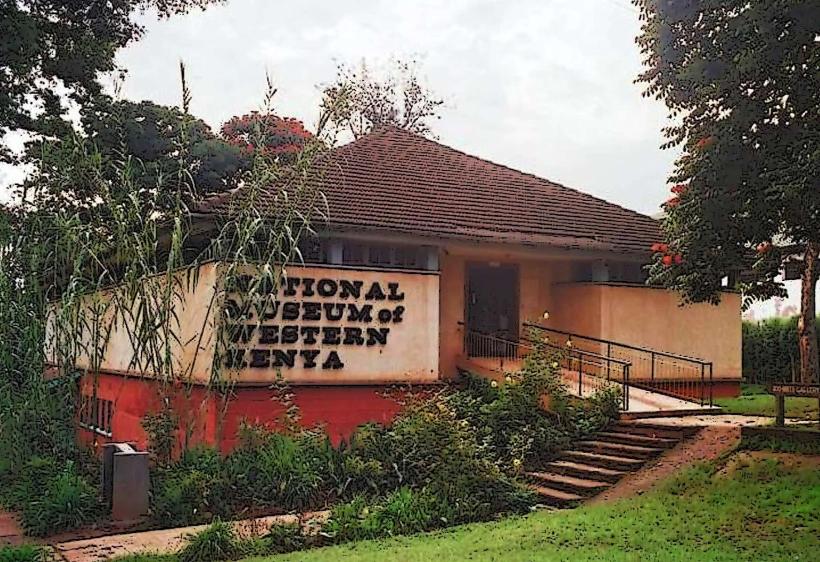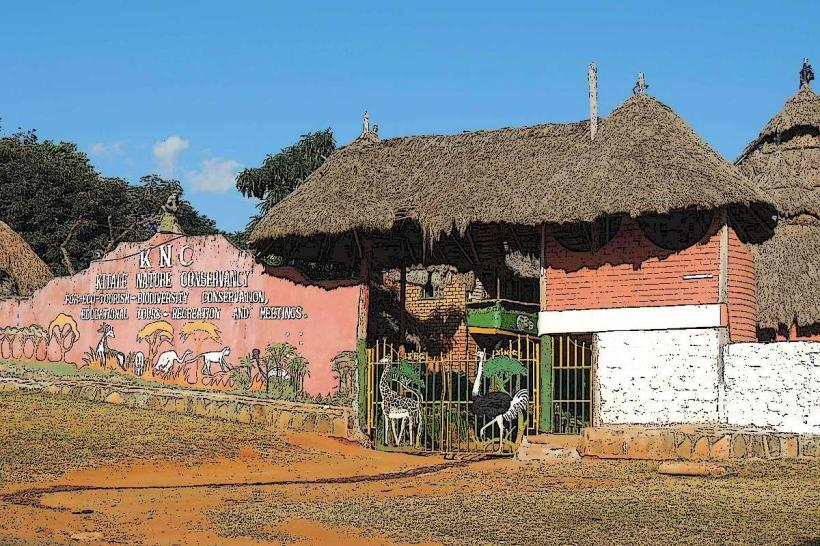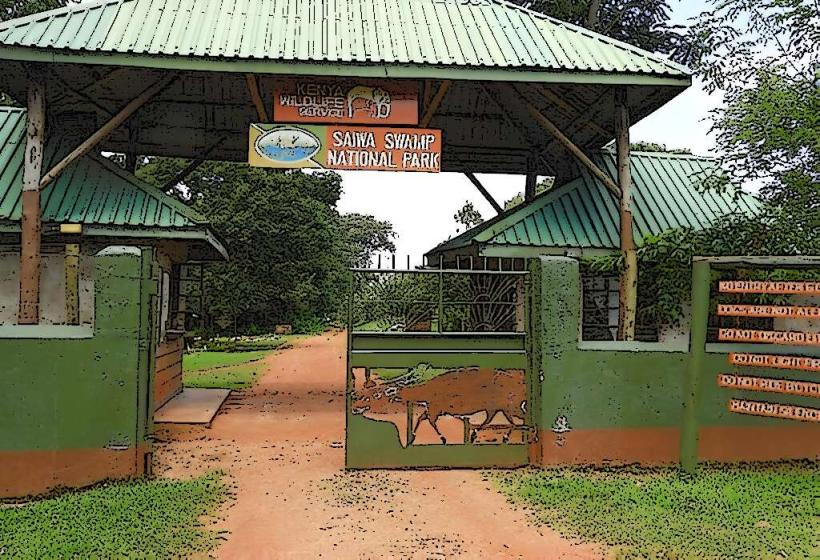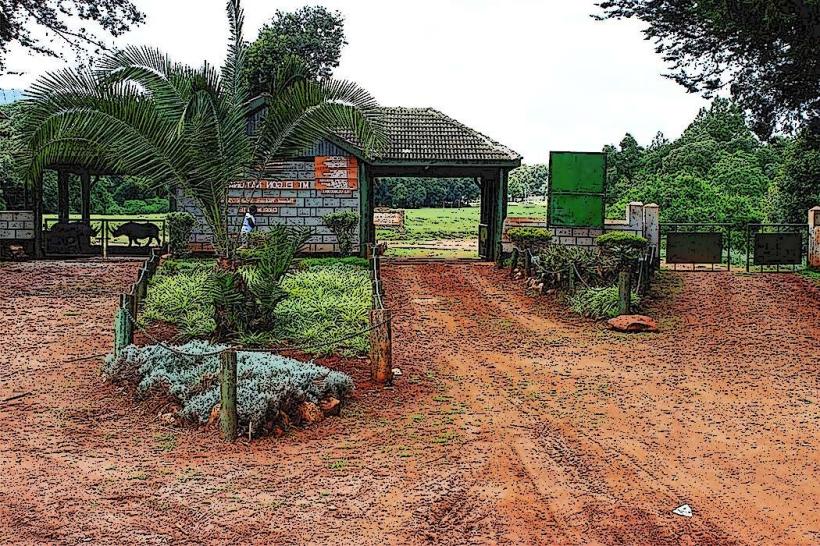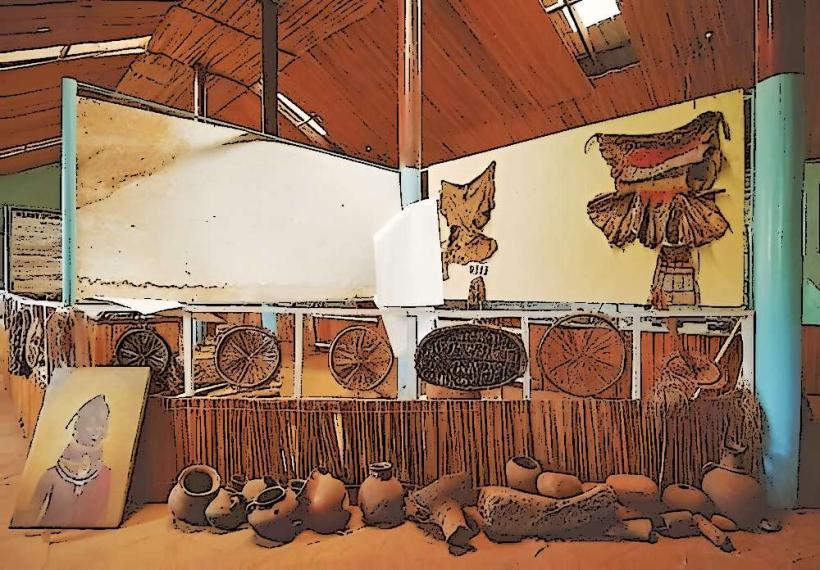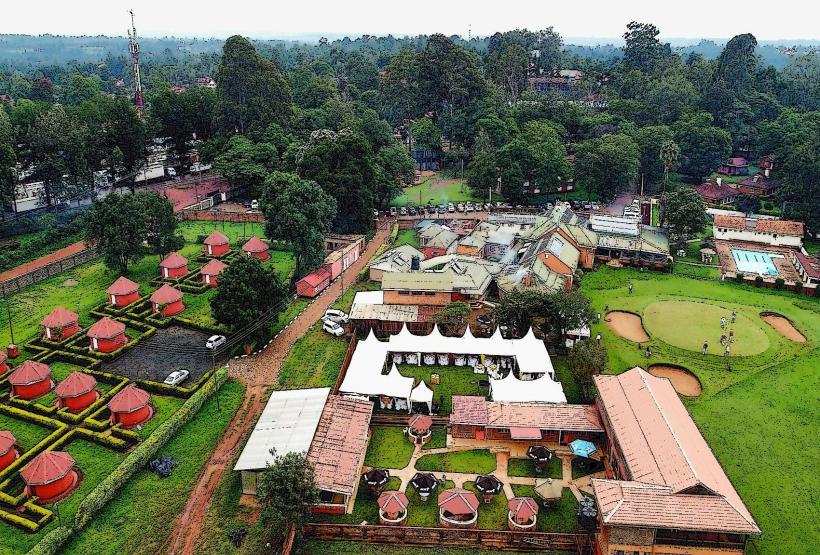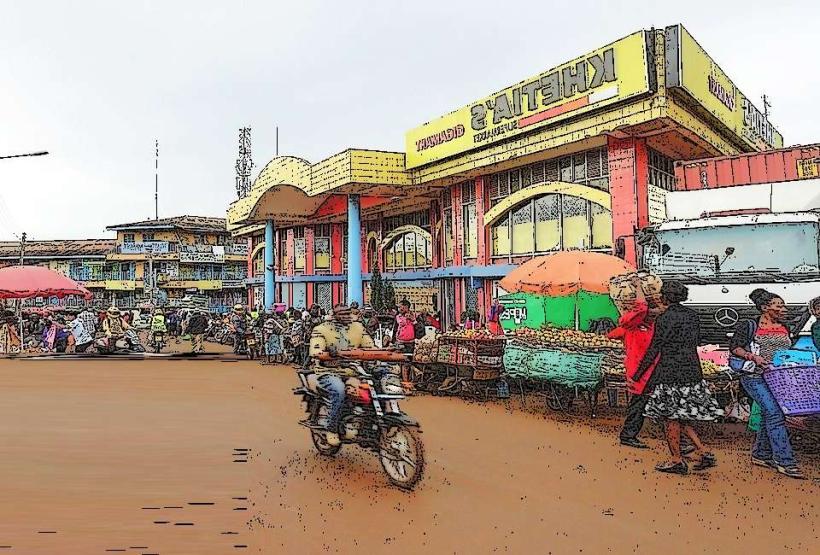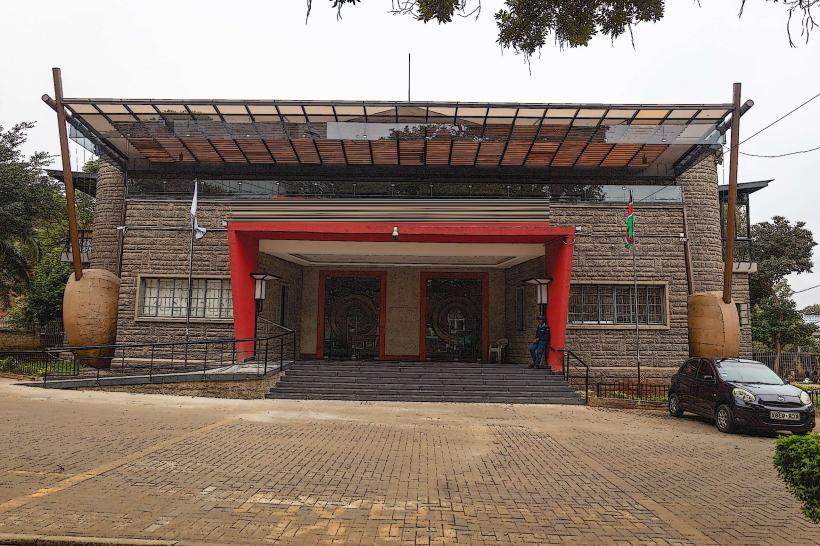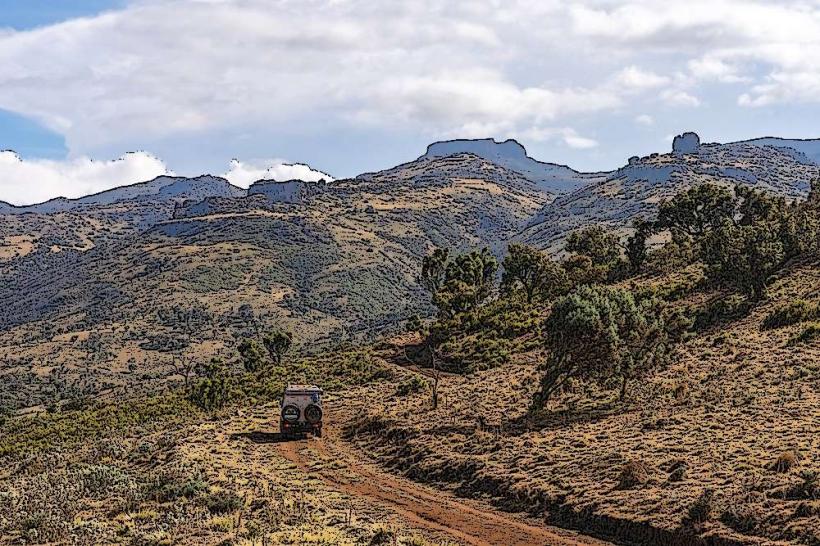Information
City: KitaleCountry: Kenya
Continent: Africa
Kitale, Kenya, Africa
Kitale is a town located in the Rift Valley region of Kenya, specifically in Trans-Nzoia County, which lies to the northwest of Nairobi. It is situated at an altitude of about 1,900 meters (6,230 feet) above sea level, giving it a cool, temperate climate. Kitale is an important agricultural and commercial center, and it serves as a key gateway to the western parts of Kenya, as well as neighboring Uganda.
Geography and Climate
Kitale lies in a fertile agricultural zone, with rich volcanic soils that support diverse farming activities. The town enjoys a mild climate with moderate rainfall, making it ideal for the cultivation of a wide variety of crops. The region experiences two distinct rainy seasons: the long rains from March to May, and the short rains from October to December. The average annual rainfall is about 1,200 mm (47 inches), ensuring that the area remains green and lush throughout the year.
The landscape around Kitale is characterized by vast plains and rolling hills, which are part of the Great Rift Valley. To the north of Kitale lies the Cherangani Hills, a mountain range that provides scenic views and is a popular spot for hiking and nature walks.
Economy
Kitale is primarily known for its agricultural activities, which form the backbone of its economy. The fertile land in the surrounding areas is used for the cultivation of crops such as maize, wheat, beans, potatoes, and horticultural products. The region is one of Kenya’s top producers of maize, and it plays a vital role in the country’s food security.
In addition to maize farming, Kitale is a major hub for horticulture, with farmers growing fruits and vegetables for both local consumption and export. The region’s proximity to Uganda also makes it an important trade point, with agricultural products being transported across the border.
Kitale also has a small industrial base, with the processing of agricultural products such as flour milling, oil extraction, and fruit canning. The town has a number of small factories that process maize, wheat, and other agricultural produce, adding value before they are sold in the local or export markets.
In addition to agriculture, the service sector in Kitale is growing. The town has a variety of retail shops, banks, and markets, providing services to the local population and the surrounding rural areas. Kitale also has a small but growing tourism sector, with some visitors coming to explore its natural beauty, agricultural exhibitions, and cultural activities.
Transportation
Kitale is well-connected to other parts of Kenya, primarily by road. The town is located along the Kitale-Kakamega Road, which connects it to Kakamega to the south and the Nairobi-Kisumu Road to the east. The town is also linked to the larger town of Eldoret and Nairobi by road, making it an important transit point for goods and travelers.
Public transport in Kitale is readily available, with buses, matatus, and taxis serving the town and its surrounding areas. Kitale Town Bus Station is the main hub for long-distance buses traveling to various destinations across Kenya.
The town also has a small airstrip for light aircraft, but Kitale does not have a major airport with regular commercial flights. The nearest international airport is Eldoret International Airport, which is about 80 kilometers (50 miles) away and serves as the main gateway for air travel in the region.
Demographics
Kitale has a population of around 300,000 people, making it one of the larger towns in the Rift Valley region. The majority of the population belongs to the Luhya ethnic group, with smaller numbers of Kikuyu, Luo, Kalenjin, and other communities. Kitale has been a destination for many people from surrounding rural areas, drawn by the town's economic opportunities, particularly in agriculture and trade.
The town’s population has been growing steadily, driven by urbanization, migration from rural areas, and its expanding role as a commercial and agricultural hub.
Education
Kitale has a range of educational institutions, including both public and private schools, as well as institutions of higher learning. The town is home to several well-regarded secondary schools, such as Kitale High School and St. Monica Girls' High School.
In terms of higher education, Trans-Nzoia University is the primary institution for post-secondary education in the town. The university offers programs in fields such as education, business, agriculture, and social sciences, helping to provide skilled graduates to support the local economy.
In addition to these, there are several vocational and technical training institutions in Kitale that focus on areas such as agriculture, technical skills, and business, which are crucial for the town's development.
Healthcare
Kitale is served by a variety of healthcare facilities, both public and private. The Kitale County Referral Hospital is the main public hospital, offering a wide range of medical services including emergency care, outpatient services, maternal and child health, and specialized treatments. The hospital also serves as a referral center for the surrounding areas in Trans-Nzoia County.
In addition to the public hospital, Kitale has several private healthcare providers such as St. Mary's Hospital Kitale and Pioneer Medical Center, which offer higher-end medical services, including surgical procedures, diagnostic services, and maternity care.
Despite the growing healthcare infrastructure, challenges such as overcrowding in public hospitals and limited access to specialized services in rural areas remain, though efforts are being made to improve healthcare delivery.
Social and Cultural Life
Kitale is a bustling town with a vibrant cultural life. The town's economy and social life are heavily influenced by its agricultural activities. Farmers’ markets are common, and they provide a space for people to buy and sell fresh produce, livestock, and other agricultural goods. The agricultural fairs and events, such as the Trans-Nzoia Agricultural Show, attract visitors from across the region and showcase the area’s agricultural achievements.
The Luhya people, the predominant ethnic group in Kitale, have a rich cultural heritage, with traditional music, dance, and ceremonies being an integral part of life. Many of the town’s social gatherings, festivals, and weddings incorporate traditional practices alongside modern influences.
Kitale also has several recreational spots, including parks, clubs, and restaurants, where people can relax and socialize. The town has a number of churches, mosques, and community centers that serve the social and spiritual needs of its diverse population.
Tourism
Kitale is not traditionally known as a major tourist destination, but it offers several attractions for visitors. The Kitale Nature Conservancy, located a few kilometers outside the town, is home to a variety of wildlife, including giraffes, zebras, and antelopes, and offers an opportunity for nature walks and wildlife watching.
The Cherangani Hills to the north of the town are a popular destination for hikers and outdoor enthusiasts, offering scenic views and trails through the lush landscape. Visitors can also explore Kapenguria, a nearby town, which is home to the Kapenguria Six Museum, dedicated to the history of Kenya’s independence struggle.
Additionally, the region’s agricultural significance, particularly in maize and wheat farming, means that visitors often come to explore the agricultural landscape, attend agricultural exhibitions, and learn about the importance of farming in the area.
Challenges and Development
Kitale, like many other towns in Kenya, faces challenges associated with rapid urbanization. Population growth has put pressure on housing, infrastructure, and services. The demand for better roads, waste management, and public services is increasing as the town’s population grows.
Agricultural development in Kitale is also impacted by issues such as soil erosion, land degradation, and climate change. While the town is a major agricultural producer, efforts are being made to promote sustainable farming practices and improve agricultural productivity.
There is also the challenge of providing adequate healthcare and education services to the growing population, with the need for more resources and infrastructure to meet the needs of residents.
Conclusion
Kitale is a key town in western Kenya, serving as a major agricultural and commercial center in Trans-Nzoia County. Its fertile land, moderate climate, and strategic location make it an important hub for food production and trade. The town’s growing economy, along with its cultural heritage, vibrant social life, and scenic surroundings, position it as an important player in the Rift Valley region. However, like many rapidly growing towns, Kitale faces challenges related to urbanization, infrastructure development, and environmental sustainability, all of which are being addressed by the local government and community organizations.

